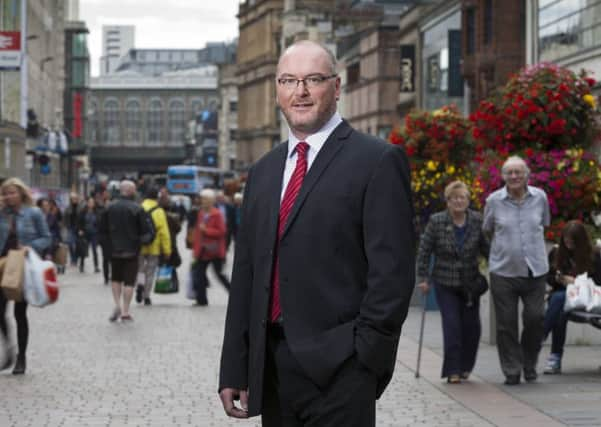Claire Ford: Communication added to strategic vision key


Effective leadership is often quoted as key to the success or otherwise of an organisation and one which we explored at our recent Leadership and Quality Conference where the 100-strong audience heard from speakers from Scotland and across Europe on what it means to Lead with Vision, Inspiration, and Integrity.
Those of us involved in driving business excellence within our organisations know how difficult it can sometimes be to change the culture of an organisation to enable business excellence to flourish and permeate across every aspect.
Advertisement
Hide AdAdvertisement
Hide AdSome recent research in the Harvard Business Review looked at the four key elements of embedding a quality culture and it is not surprising that “Leadership Emphasis” was quoted as one of the most important. Disappointingly, almost half of employees surveyed reported insufficient leadership emphasis on quality. If leaders don’t champion organisational improvement and drive activities forward their message will lose credibility and the crucial aspect of getting staff buy in and involvement will be all but lost.
With our vision to “Make Excellence a National Characteristic of Scotland” this needs to be driven by Scotland’s leaders. If we don’t stand up to Lead with Vision, Inspiration and Integrity, inspiring and involving our people and championing the values of excellence what is the alternative? I’m sure we have all seen what the alternative looks like and it’s not something we would be inspired to replicate.
This is not just our view and a Scottish perspective on things, Thomas Bauerle, a European lead assessor also shared with us the importance of uniting people and setting a clear direction where a culture of ideas and innovation is promoted to get the best out of our people, getting them engaged and involved in everything you do.
When we polled our conference audience around the most important characteristics of leadership again it’s not surprising that strategic vision came out on top clearly followed by communication.
A clear example of that strategic vision and how it has been effectively communicated was presented on the day from Wheatley, telling their story from the days of difficulty as Glasgow Housing Association through to the Think Yes programme of staff empowerment. Martin Armstrong took over as CEO in 2008 and placed the customer at the heart of everything that they do and as the main driver of the business and performance. Customer satisfaction now sits at 94 per cent having increased from 67 per cent just over eight years ago. Likewise staff satisfaction has gone from 55 per cent to 94 per cent in the same time period. The Wheatley story is truly one of transformational leadership and we are delighted to continue to work with them as they continue their excellence approach.
A key theme of the conference was the importance of the people within any organisation. Juan Bonilla, chairman of Spanish oil and gas giant CLH-PS, reflected on how the people, ie the staff are the key stakeholders of his organisation. He stated that: “A company is a very complex system but modern infrastructure, effective management and leading edge technology would be totally useless if you cannot count on an expert, human team, motivated and aligned with the company strategy.” CLH-PS have developed a leadership model with “exemplariness” or “leading by example” at its heart.
Mike McShane, Head of Optimisation at RBS, who have not been without their leadership challenges over the last eight years, stressed that the only certainties in business are “change” and “ambiguity”. Leaders need to adapt and new leadership behaviours are required, role-modelling from the top and getting top talent involved is the key to successful change – “As a leader you are part of the system, not adjacent to it!”
In conclusion, leaders need to drive any improvement programme within their organisation and truly lead by example in their behaviour. As leaders we may feel pressure to make an immediate impact on our organisations but how often do we do this with all the right tools and information to hand?
Advertisement
Hide AdAdvertisement
Hide AdThe EFQM Excellence Model is the perfect tool for you whether a new leader or someone with a lot more experience behind you. Using the model as your business tool to give you the information and holistic view that you need to shape the future direction of your organisation, ensuring that you aren’t just making short term changes but are truly building a strategy that focuses on your organisation’s long-term sustainability.
In this our anniversary year we want to engage with more leaders and have partnered with RBS to offer a business mentoring programme to our members to help with leadership and adding value for customers.
• Claire Ford, CEO, Quality Scotland
For more information on this new Business Mentoring Programme and the other work visit www.qualityscotland.co.uk